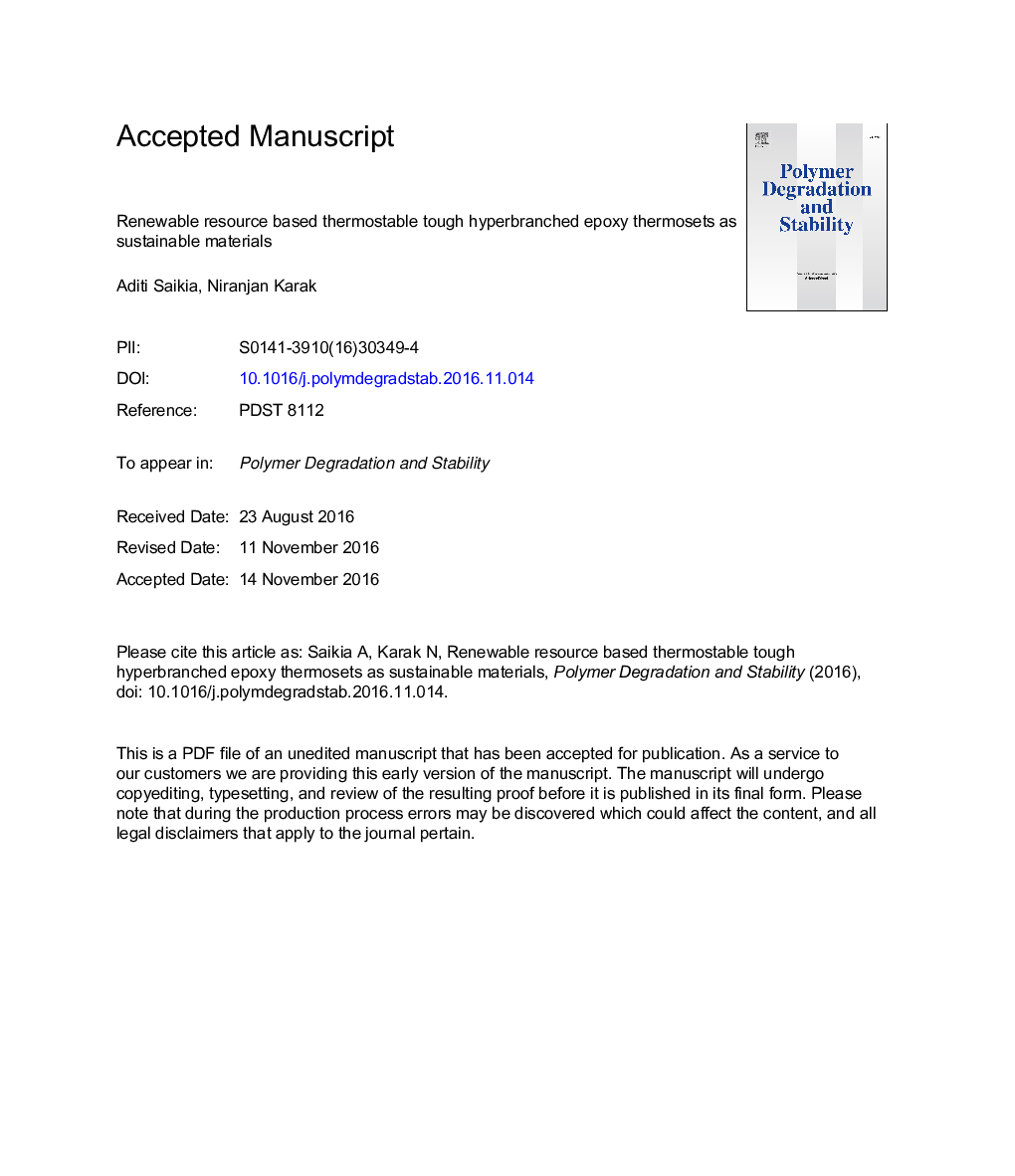| Article ID | Journal | Published Year | Pages | File Type |
|---|---|---|---|---|
| 5201020 | Polymer Degradation and Stability | 2017 | 32 Pages |
Abstract
The present study is focused on developing an environmentally benign bio-based epoxy thermoset that can be used as a sustainable material for various engineering applications. So, renewable resources like sorbitol and castor oil are used to synthesize novel hyperbranched epoxy resins. Three hyperbranched epoxy resins of castor oil with varying ratios of sorbitol along with conventional reactants are reported here. The chemical structure of them is confirmed by FTIR and NMR studies. The epoxy thermosets cured by fatty acid derived poly (amido amine) showed excellent mechanical properties such as high impact resistance (upto 34.5 kJ/m); good tensile strength (upto 31 MPa); good elongation at break (upto 37%) and moderate scratch hardness (upto 5 kg); high thermal stability (upto 293 °C); high tensile adhesive strength (upto 2152 MPa); good chemical resistance in different chemical environments and acceptable biodegradability. Thus, the sorbitol modified castor oil based hyperbranched epoxy thermosets are found to be superior in toughness, biodegradability, elongation etc. compared to a linear epoxy resin without sorbitol as well as previously reported thermosets derived from bio-based materials like vegetable oil, starch and glycerol. Therefore, these thermosets possess great potential to be used as sustainable materials for various advanced applications.
Keywords
Related Topics
Physical Sciences and Engineering
Chemistry
Organic Chemistry
Authors
Aditi Saikia, Niranjan Karak,
